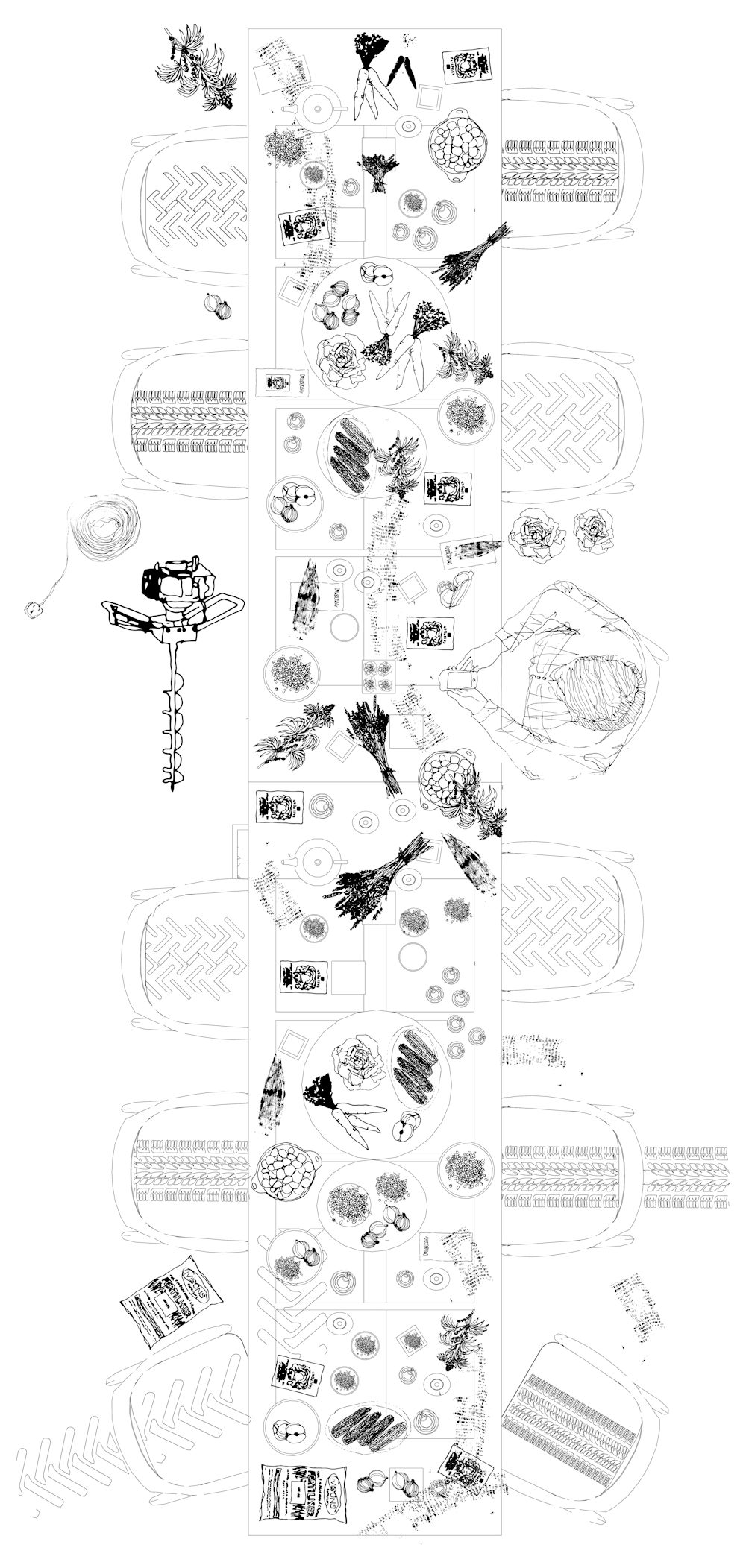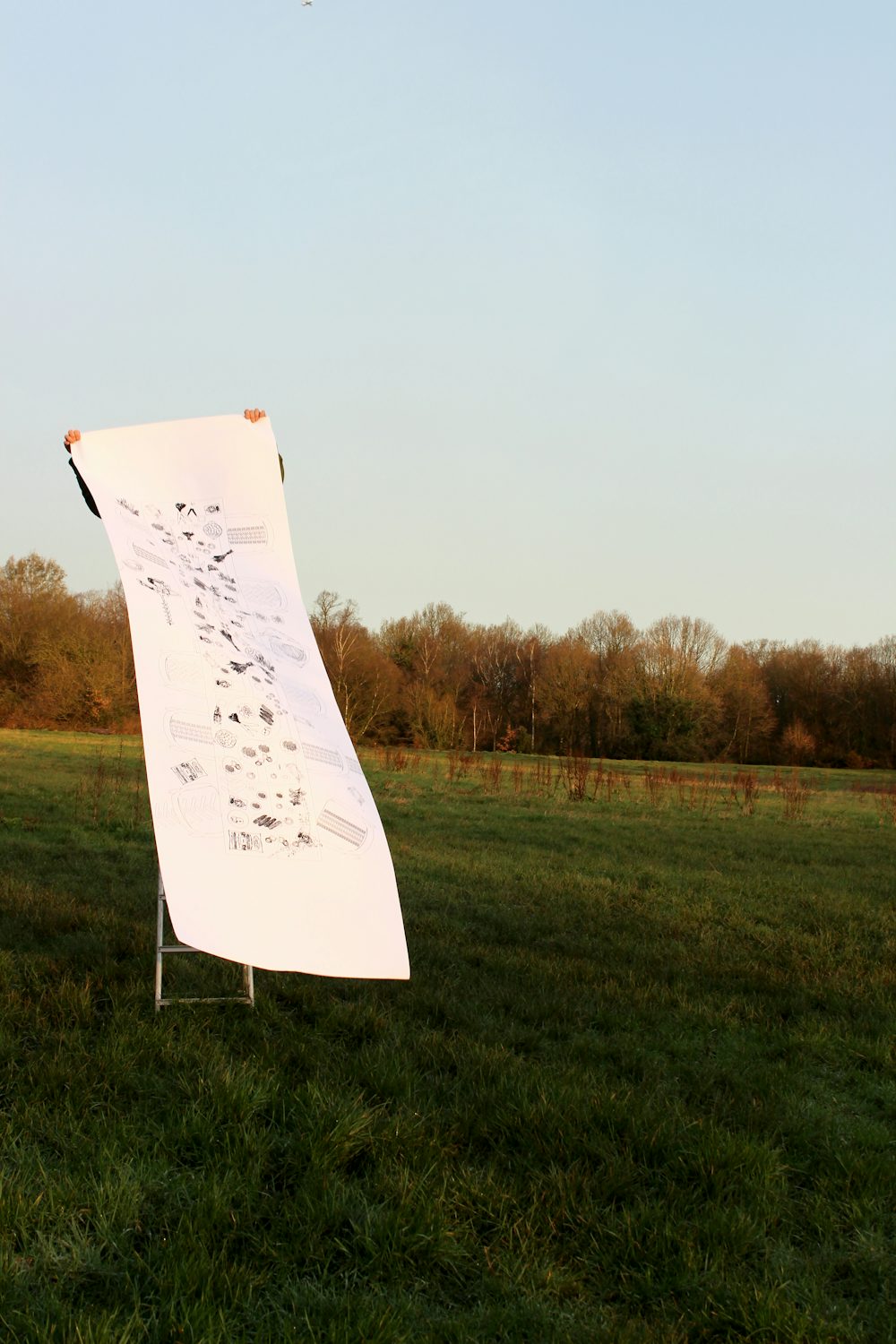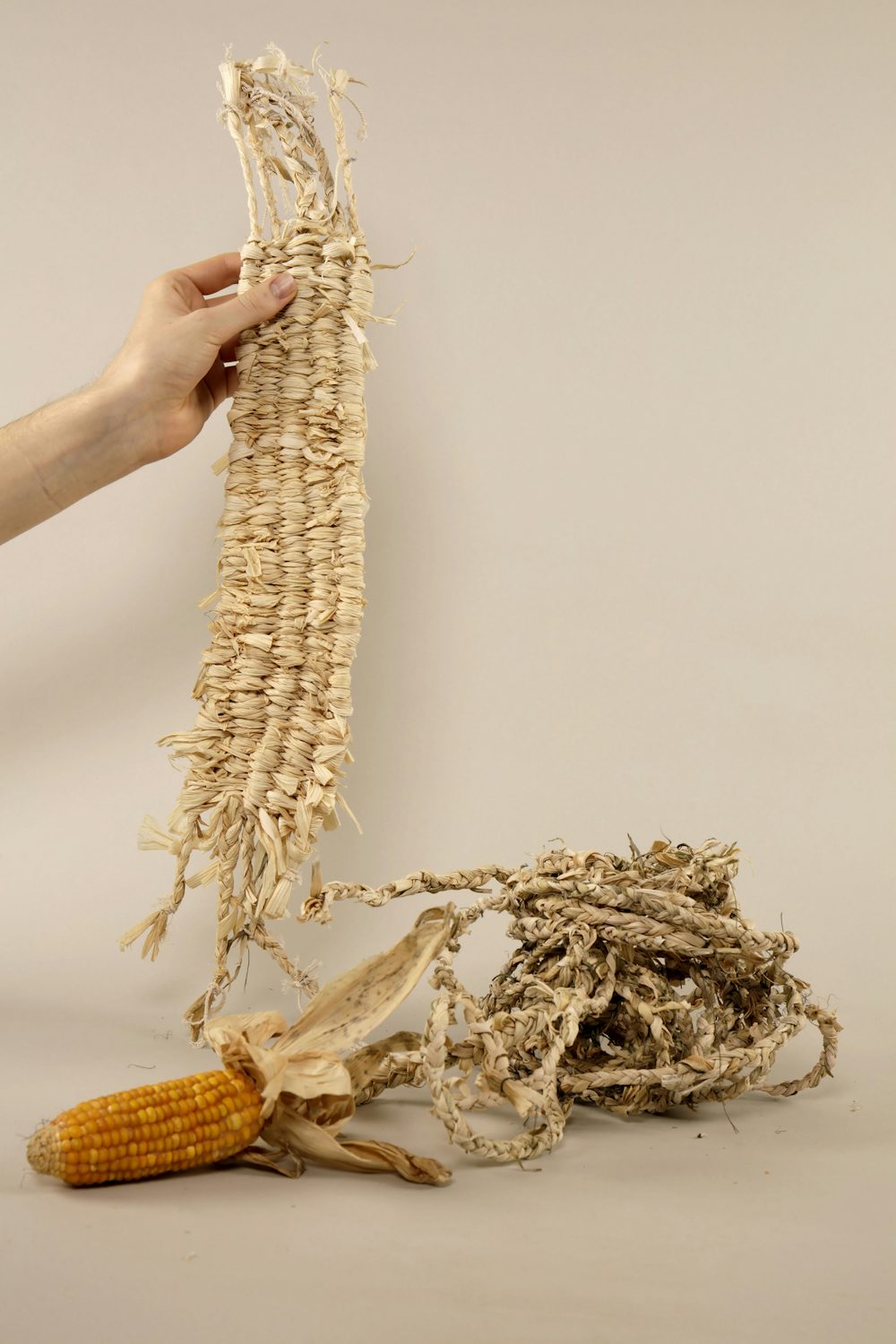The isolated farmer sits at the table with places laid for the invisible season migrant worker. The machinery has made an appearance but couldn't stay for long. Contaminated soil is served as a starter and the chemical gravy can be added to any dish. An abundance of cereal crops scatters across the table and spills off the edge. A large amount is left to rot. The celebration is excessive and chaotic.
A photograph captures the farmer at dawn using the feasting table drawing as a tool to reflect on the landscape. It references harvest festival performances that once took place in the field. It acts as a mediator between the farmer, the changing physical landscape and the resulting cultures and traditions that emerge.
How is post-industrial agricultural Britain changing, particularly in relationship to the climate and political crisis? What is the relationship between the farmer, the worker, the farm and the wider environment? Through the mediating object; the harvest feating table, this work aims to comment critically on the challenge facing current British agriculture.
Harvest, historically and traditionally, involves the celebration of what has been produced. Harvest festivals, straw dollies, gatherings and social occasions were common place and well attended due to the large numbers of people involved in the harvest process. In the Industrialised farming world the human presence is vastly decreased. Or increasingly invisible. Seasonal migrant work is an essential if often unseen part of the industry. What does this mean in the context of a changing British climate?
Industrially produced crops are processed efficiently and reliably. Products and precise and bountiful. But what is the harvest festival of the post industrial farming process? Should it celebrate the commercialisation of farming of should it comment on the huge amounts of agricultural waste produced? Is it important to celebrate the act of machine farming, or is it more important to produce an object that comments on the isolation of British farmers.
In order to critically illustrate the state of British farming I will produce an image of the future harvest festival feast. Each element will refer back to contemporary British farming. Empty place settings will signal the invisible migrant worker. Excesses of cereal crops with their waste material will sit alongside their branded products. Glasses of biofuel will stand as a hopeful alternative to a dystopian monoculture. It will not be a nostalgic celebration of farming, rather an uncanny - hyper real snapshot of the issues British farms encounter.


